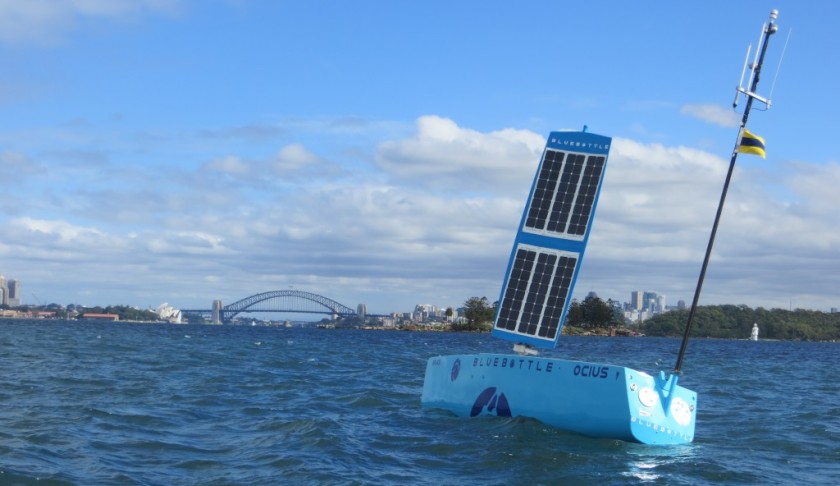Australia-based OCIUS is in negotiations with the Defence Innovation Hub (DIH) to support continued development of the company’s BlueBottle USV.
To continue reading the rest of this article, please log in.
Create free account to get unlimited news articles and more!
The $1.57 million contract over 12 months will enable OCIUS to continue to improve hardware and software by building a 'next-gen' 18-foot BlueBottle and networking that with 'Bruce' and other assets, which will be used as part of an “intelligent command and control network of autonomous persistent USVs” to be demonstrated off the coast of NSW from April-June next year.
BlueBottle USVs are autonomous data gathering and communications platforms being like 'satellites of the sea'. They offer multiple economic and operational advantages over conventional methods of ocean surveillance such as:
- Continuous coverage;
- Wide coverage;
- Greatly reduced capital costs;
- Greatly reduced operational costs – no fuel, food or crew;
- Elimination of errors due to human fatigue; and
- No people or expensive assets in harm's way.
 Other persistent USVs carry only small payloads, have low power for the payload and often have low performance to manoeuvre, avoid collisions and 'make way' out of currents.
Other persistent USVs carry only small payloads, have low power for the payload and often have low performance to manoeuvre, avoid collisions and 'make way' out of currents.
BlueBottles harvest all the weather on the ocean; the sun, the wind and the waves so they can advance under all conditions and can remain at sea for months at a time.
BlueBottles have more power, payload and performance in the one USV than any known persistent USV. Applications for USVs are myriad and measured in the billions of dollars. Major entities in offshore energy, defence and science are investing heavily in unmanned systems for “dull, dirty or dangerous” operations. Independent industry research estimates the USV market for defence alone to be a staggering US$3.8 billion by 2020.
OCIUS is working with two major private-sector partners to develop USVs capable of undertaking specific high value applications in hydrography and defence.
BlueBottle has its origins following an inquiry from the US in 2007 for a ‘self-sustaining platform at sea’, OCIUS began research into the development of unmanned solar/wind/wave and ballasted powered ocean vessels or autonomous unmanned surface vessels. Initially, a 20-foot manned engineering development model (EDM) proved the 'speed of advance' in all conditions, adequate power, payload and persistence for a sustainable platform able to go to sea for months.
With Ulladulla Fibreglass and Engineering, OCIUS built multiple scale models for tank and lake testing, culminating in the building of the first 10-foot prototype called 'Nemo' (Latin for 'no one' i.e. unmanned), which provided significant proof of concept of a solar, wind and wave powered USV carrying a significant payload.
Based on Nemo's development, in 2015 OCIUS was awarded a $3 million Capability Technology Demonstrator (CTD) from Defence Science and Technology Group. This proved a significant contract and OCIUS, with partners, developed an 18-foot prototype, 'Bruce', for anti-submarine warfare (ASW).

 Login
Login







